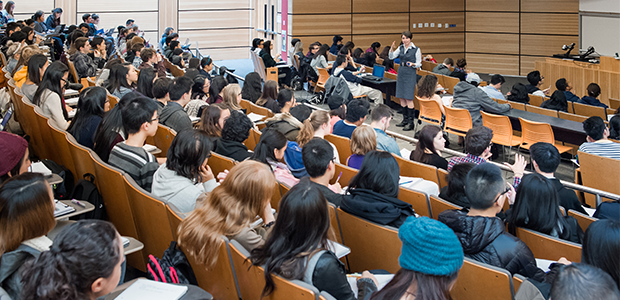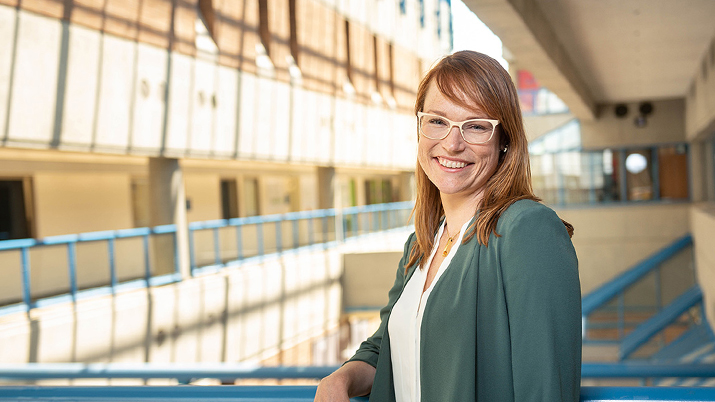

When Dr. Peter Graf was an undergraduate student, the only time he was exposed to the work of his peers was when he went to pick up his graded essay in a box outside his professor’s door. Curious, he picked up a stack papers and sat down to read through them.
“I really wanted to know, what the hell did they do — whether they got a better grade or they got a worse grade,” says Graf, professor of psychology at UBC. “I want my students to have that experience of seeing how their papers stack up against worse papers and better papers so that you actually have a clue of where you are.”
The lack of opportunity for undergraduate students to see their classmates’ work motivated Graf to pilot a peer assessment workshop in his PSYC 101 and 102 courses with Dr. Catherine Rawn, senior lecturer in the UBC department of psychology. With the help of CTLT Educational Designer Bosung Kim, they developed an online workshop to train students about peer assessment.
Using sample essays from previous students, students are tasked with reading essays and giving an assessment based on provided criteria. They’re then able to view how their feedback compared to that of the instructor and their peers.
“It’s very important to have them calibrate their rating choice close to instructors, experts and even their peers. Having this information from peers and the instructor is really important to share,” Kim said.
In PSYC 101 and 102, Graf and Rawn teach large sections of about 300 students. In classes this large, it’s hard for instructors to give out written assignments — even though that’s one of the goals.
“If you have a large class and you want the students to write, the amount of time you have available for providing feedback, whether as instructors or TAs, is so minimal that there’s just no room for writing comments. That’s not something we can really learn from — what we need is critical constructive feedback,” Graf said.
Utilizing peer assessment can be critical in allowing students to receive feedback in large courses. However, students have traditionally held negative feelings towards peer assessment. This poses an important question for Kim: can training in peer assessment improve student perceptions?
“If a student perceives that their peers cannot do peer assessment, then they will not accept the feedback they got from their peers,” Kim said. “So knowing that all the peers went through this workshop would really help make this more acceptable, not just providing better feedback but being more accepted by students.”
This article was originally published by UBC’s Centre for Teaching, Learning and Technology. Read the original article.


